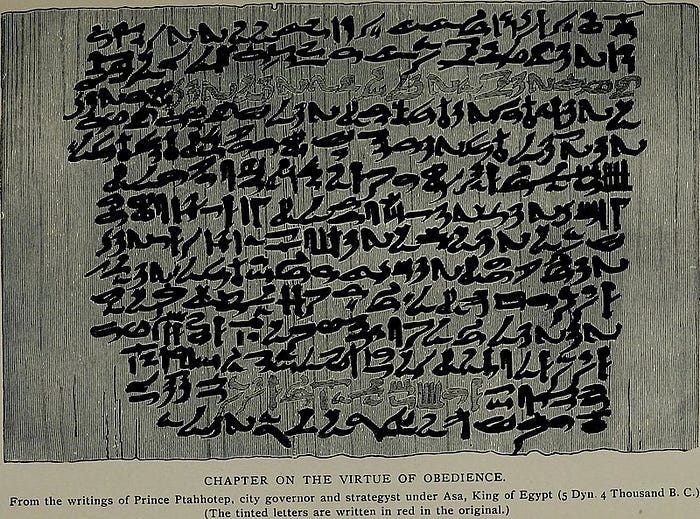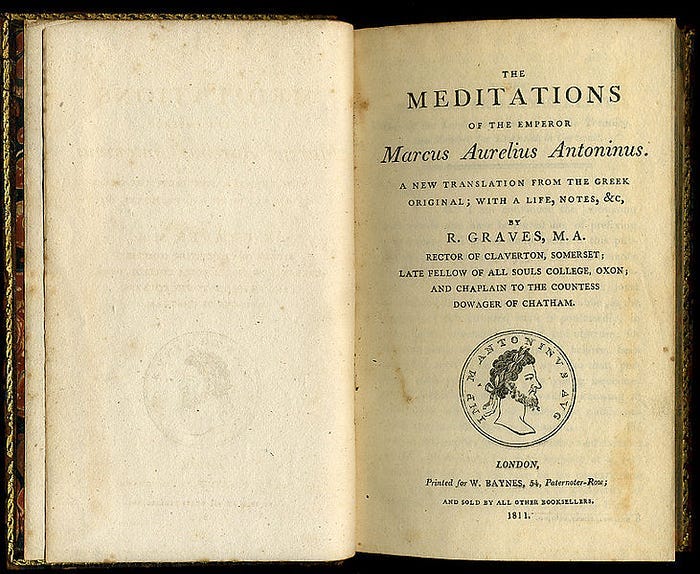An Ancient Technology For Escaping The Everyday World
It bypasses time, frees us from mindless boredom, and cures our mental wounds

What if I told you there was a way to escape monotonous regularity while sitting in a traffic jam? Although a commute isn’t necessary. It’ll work whether you’re on the go or home.
Call it a key for whatever repetitive prison you find yourself stuck in.
It involves an ancient creation of humanity bolstered by modern devices. We call it literature, or storytelling. But Dr. Angus Fletcher in his book Wonderworks refers to it as technology. Perhaps mankind’s greatest.
I use it every day. This ancient tech allows my mind to travel outside of my car while surrounded by countless other vehicles stuck in traffic. While they curse and complain, I’m engaged.
I ride with the greatest teachers who ever lived: philosophers, clinical psychologists, scientists, authors, and other genuine interesting misfits. My metal cocoon is a classroom. And its instruction method is literature and storytelling.
But forgive my focus on traffic, this tech can also help you escape the boredom of a repetitive job or life. All can take part in its gifts of freedom, therapy, and knowledge.
At this point, you may roll your eyes. I don’t blame you. So, let me prove the power of this technology by taking you on a trip. It begins about 7,000 years ago with a story.
A Technology That Destroys Barriers Of Time
“The volcanic eruption of Kinrara adds to a growing list of geological events that appear to be recounted in Australian Aboriginal traditions, including sea level rise around 10,000 years ago and other volcanic eruptions elsewhere on the continent.”
— Doctor Benjamin Cohen, Phys.org website
In 2017 a scientific team studying rocks in Australia found evidence of a massive volcanic eruption in Queensland. Researchers dated the blast at Kinrara to about seven-thousand years ago.
Although this wasn’t news to the local aborigines.
Dr. Benjamin Cohen found a recording of an elder of the Gugu Badhun tribe describing a pit blowing smoke in the air and the earth being “on fire,” with people dying in the chaos.
He believes this to be a description of Kinrara. So, the oral tradition likely passed down over two hundred generations to reach us today. Think about it. That means this story is older than the Great Pyramid of Giza, which is about forty-five hundred years old.
It also blows away written works, like the Maxims of Ptahhotep, which has existed for about four thousand years.
However, Cohen also describes tribal stories going back to older eruptions and changes in sea level. So, consider this a demonstration.
The technology of story can outlast monuments, survive volcanoes, and travel through time. But it can also free one’s mind in the harshest of circumstances, as you’ll soon see.
Our next stop is one of the darkest prisons created by man.
A Technology Of Escape For Prisoners Everywhere
“From Aristotle, Stockdale had learned that free will can exist within a state of imprisonment. From Epictetus, the influential Stoic, he had learned about our ability to shape experience by perception…”
— Jonathan Mahler, The Lives They Lived; The Prisoner, NY Times
In 1965 James Stockdale was shot down over Vietnam and soon found himself in Hoa Lo prison or the Hanoi Hilton. As the years passed, more pilots joined him. It was a life filled with physical and mental torture, although they regularly used a technology to escape.
As Mahler above notes, Stockdale delved back in his mind to philosophical texts of his heroes to build strength. He also “calculated natural logarithms with a stick in the dust and pondered the physics of musical scales.”
Coincidentally, Plato did much the same thousands of years ago, contemplating complex geometry problems by drawing figures in the dirt. He saw mathematics as a perfect form, escaping the barriers of normal life.
It likewise freed Stockdale’s mind, which was never captured.
He organized all the captives into a unified force, communicating by knocking on walls with a tap code system. But they did much more. The group created clandestine schools to free their minds from the dull cells.
In an interview on Jocko Willink’s Podcast, Col. Lee Ellis recounts learning farming, law, and even taking a class on married life from other prisoners. While Capt. Charlie Plumb describes a six-month long biology course, among others.
Incredibly, Plumb reveals only four percent of the POWs suffered from PTSD after their release, much lower than regular enlisted soldiers. He attributes it to their mental practices. These also include a powerful ancient technology which enables the mind to escape from any prison.
As Plumb’s reference to the lower PTSD number indicates, the technology can also be an incredible therapy as we’ll soon see. Our next visit is to a Roman Emperor.
A Technology For Therapy In Times Of Trouble
“People try to get away from it all — to the country, to the beach, to the mountains. You always wish that you could too. Which is idiotic: you can get away from it anytime you like. By going within…An instant’s recollection and there it is: complete tranquility.”
— Marcus Aurelius, Meditations
Marcus Aurelius was an odd choice for emperor, mainly because he didn’t enjoy the position. It was nonstop stress. As Donald Robertson points out in How to Think Like A Roman Emperor, Marcus would have preferred the simple life of a philosopher.
Unfortunately, it wasn’t an option.
So, he escaped into his own journal, known to us today as Meditations. In it, he wrote as a form of personal therapy for dealing with the chaos of leading an Empire through war and pandemic.

In fact, Robertson, also a psychologist, notes many ideas from the same Stoic philosophy Aurelius practiced were used to create modern Cognitive Behavior Therapy.
Similarly, author and former Navy SEAL David Goggins explains stories are excellent ways for dealing with trauma. In his book Never Finished, he recounts a chaotic childhood filled with abuse that kept him prisoner as an adult.
Goggins says creating his own story helped dramatically.
He’d speak all the terrible memories into a recorder and listen to them repeatedly. Over time they lost their power. The story he told no longer held him captive, becoming just another story, like a movie.
And speaking of movies, ours is ending. It’s time for a recap.
Curing The Mindless Everyday
Earlier I mentioned a traffic jam. Much of our modern lives can resemble this endless stasis. Whether stuck in place, or going in a continuous circle of repetition, it can drain you.
For many, including me, that’s what a regular week can be like.
But our ancestors created a tool called storytelling to deal with this. We later evolved it into literature. Whatever you choose to call it today — podcasting, audiobooks, or video blogs — the media is incredibly powerful.
As Dr. Angus Fletcher points out, both Plato and his student Aristotle referred to it as a “soul lifter.”
It enables you to pass through the barriers of time, frees those trapped in whatever prison they find themselves in, and heals internal wounds an MRI can never see.
Not to mention, the technology passes on knowledge from past and present generations right to you.
So if the mindless cycle of the everyday world is grinding you down, reach for humanity’s ancient and greatest technology. Listen and absorb. Or better yet, write your own story and take part in the power.
Either way, the traffic jam may hold your body, but your mind can always be free.
- Originally Posted on Medium 1/2/23


